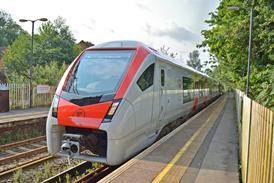WITH AIRLINES begging for state funds to stave off bankruptcy as traffic plunged in the wake of the September 11 terrorist attacks in the USA, some inter-city rail services are seeing a spectacular surge in business. In Australia, the collapse on September 13 of Air New Zealand subsidiary Ansett - not directly related to the events of September 11 - contributed to a 30% leap in rail travel between Adelaide and Melbourne, with traffic up by as much as 50% between Adelaide and Perth, and around 25% in New South Wales. Ansett’s failure also triggered calls to revive a project for a high speed line, possibly from Sydney to Canberra, which governments have rejected twice in the past.
More fundamentally, the perception of passenger railways has changed significantly in the USA. Although air travel was starting to return to normal within a month - with several significant exceptions - many people were electing not to travel. Amtrak at one stage reported traffic up by 40% in the Northeast Corridor. Anticipating a continued surge in custom, Amtrak requested a $3·2bn emergency aid package from Congress to augment security and rebuild its infrastructure between New Haven and Washington so its Acela Express trains could exploit their 240 km/h top speed. Compare this with the $15bn approved by Congress to bail out the airlines.
Even before September 11, the Republicans were working on a programme that would authorise $71bn to be spent on high speed rail projects over 10 years. This was put forward as an alternative to a bill that would give Amtrak $12bn for capital improvements. As the Republicans believe Amtrak is not fit to manage major projects, their proposal would give money to the states to spend, with Amtrak having the right to bid to run the services. The bill was filed by Don Young of Alaska, Chairman of the House Transportation Committee, and was soon followed by a rival Democrat scheme offering $37bn. Last month also saw a bill introduced to waive the 2002 deadline for Amtrak to become financially self-sufficient.
Amtrak’s Acting Chairman Michael Dukakis campaigned strongly for the $3·2bn aid package. During a ceremony in Boston on September 27 to launch two more Acela Express services to New York, he said the destiny of Amtrak, the USA and the economy were interdependent: ’these are essential investments, not just in Amtrak, but in the nation’s transportation system and the revival of our economy.’
Security measures introduced by Amtrak included a requirement for ticket purchasers to show photographic identification and increased police patrols. Transportation Secretary Norman Mineta said the threat of an attack was not immediate and rail passengers would probably not be subject to airport-style security checks.
In Europe, Eurostar estimates that its traffic is 10 to 15% down, due mainly to Americans not travelling to Europe, but also because of a general fall in business travel. Forward bookings are around 7% down compared with last year. In Belgium, steady growth in Thalys traffic was briefly interrupted in mid-September, not helped by a bomb threat; SNCB said that it was taking numerous security precautions, while in France the high-alert Vigipirate security programme has been implemented.
Subways recover swiftly - p738



















